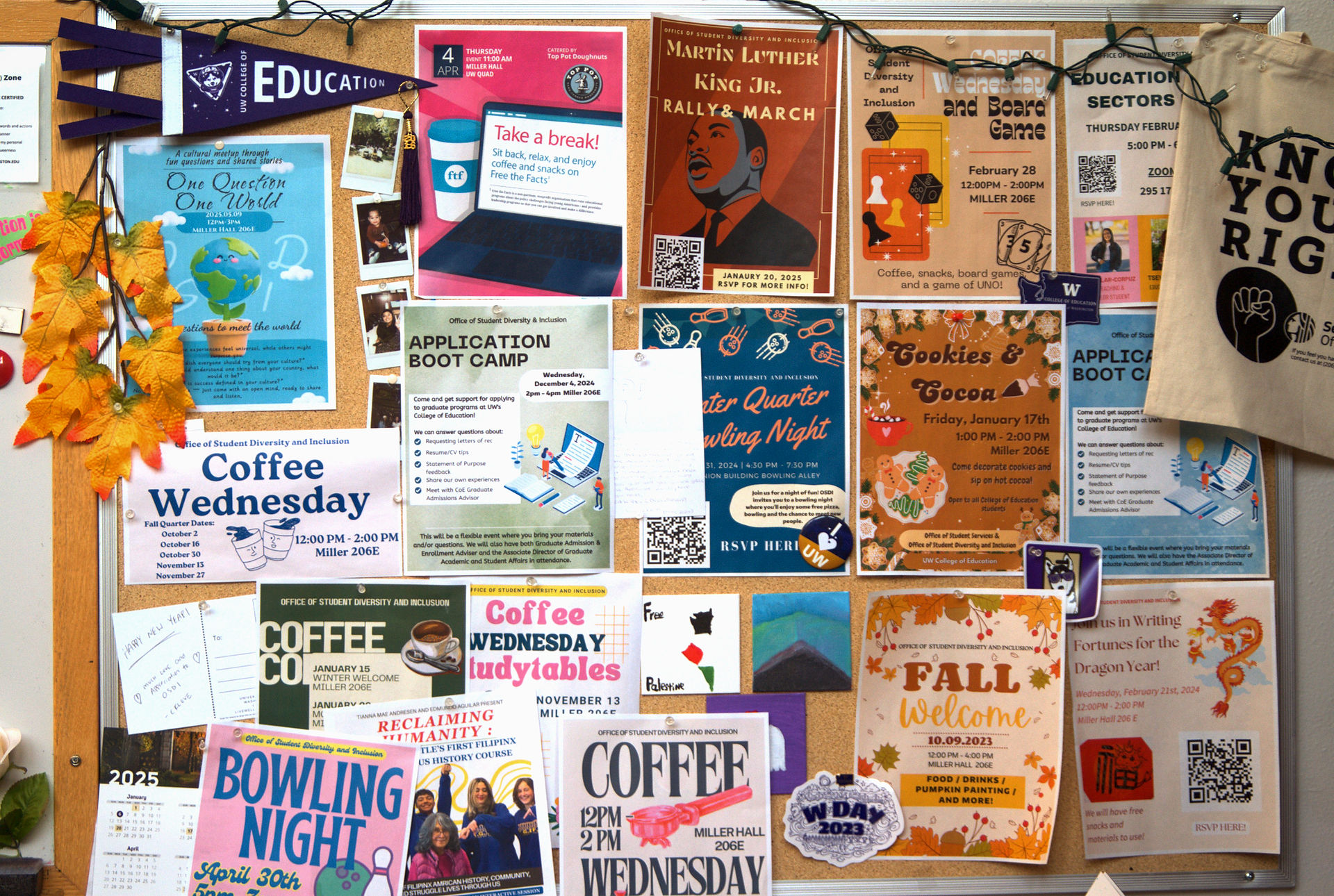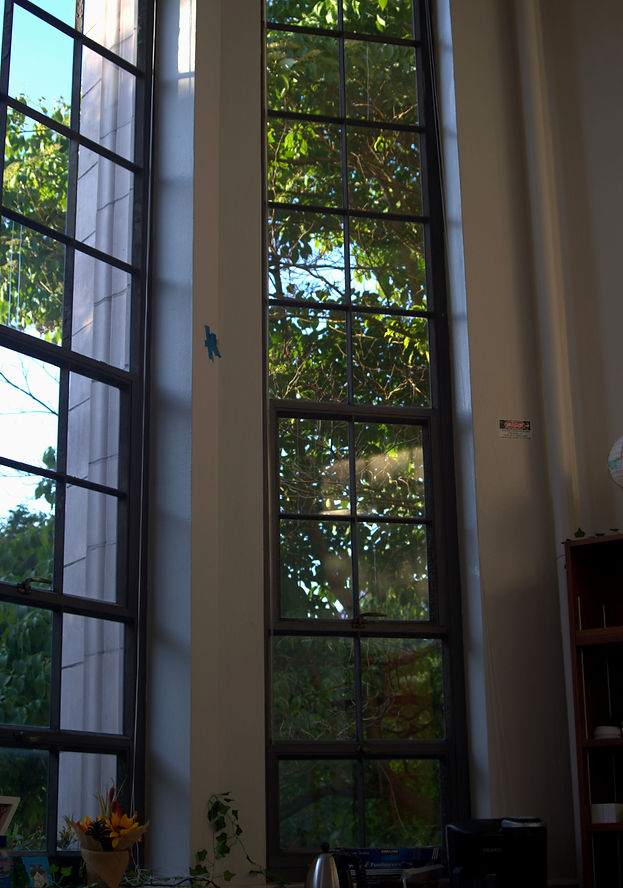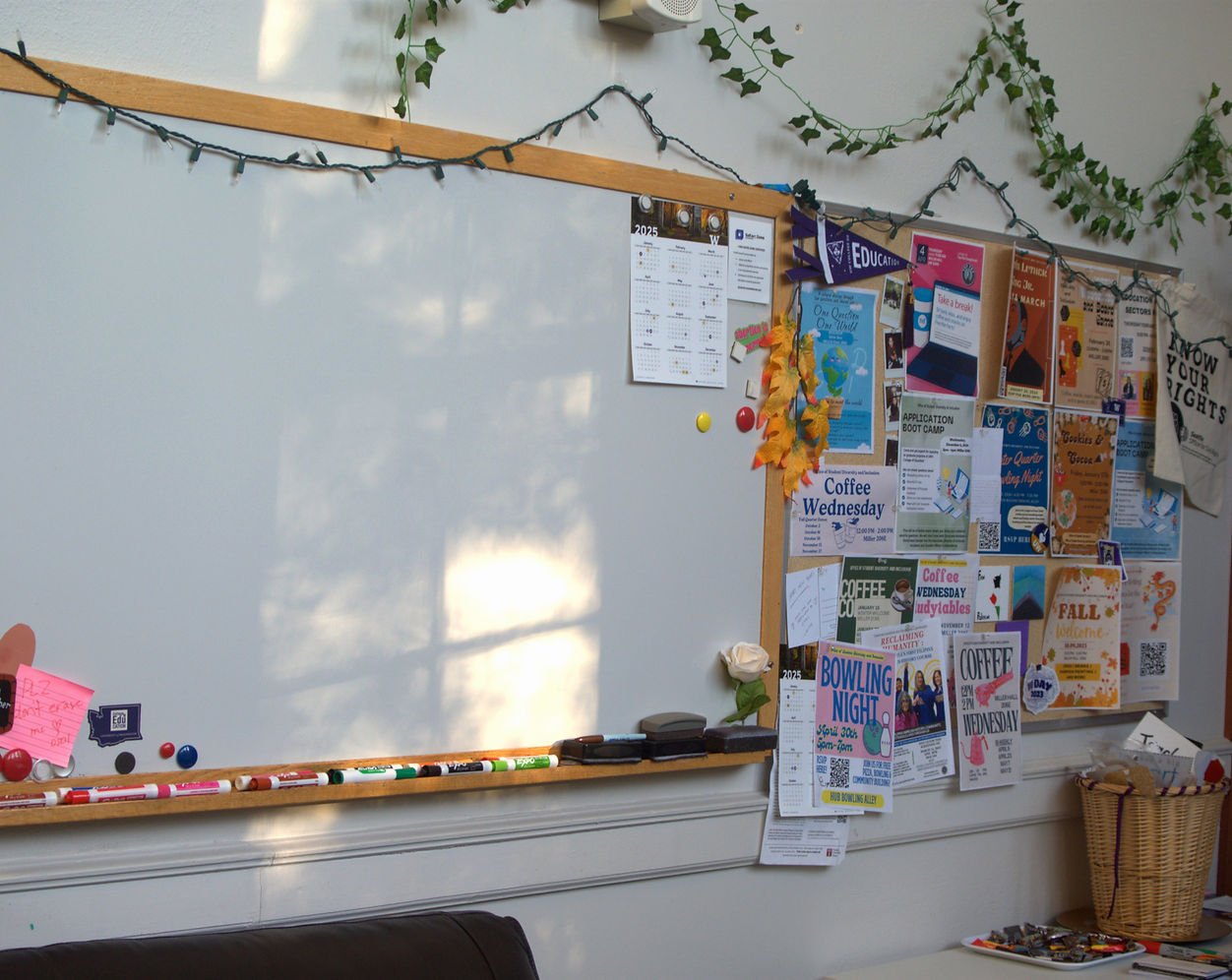
Liberatory Teaching Practice

WHY DO YOU TEACH?
When I think about the question "Why do you teach?" several things come to mind. My immediate thoughts are those that have been perpetuated due to social standards, family expectations, and first-generation pressures. These may lead me to think about what most people whisper in my ear, saying that the field I have chosen is hopeless. But when I truly think about this question and what it means to me, I think of love and power.
I have been constantly surrounded by comments that education is a struggling field, one that provides no real value to society and that it is often not held in high regard as a profession. Educators aren’t viewed the same way doctors or lawyers are; they aren’t valued as much. Nor are administrators, counselors, or educational policy workers. It’s not the first thought that comes to mind for people when they think about having a successful career that could uplift their families. Many times in my four years studying education, I heard my peers switch majors because they didn’t see the point in working in such a broken system that seemed to have no repair.
But despite it all, I studied education for four years and dedicated many of my efforts to teaching and mentoring youth. And with absolutely no hesitation and absolutely no regret, I can say that the work I did in education, especially with youth, is the most fulfilling work I have done to this day. I say to those who question the value of education and those involved in its complex field that this is the very reason I continue. Because I believe in the immense and beautiful power that education has to uplift communities, individuals, and provide clarity, visibility, and justice.
Education breeds space, love, and openness for children who may not have that at home. When the world outside is so incredibly cruel, with war, famine, political, and social strife, they can find solace in the people we place on the front lines as educators. They can find comfort and security in the people we appoint as administrators, and they can find hope and peace in the people we place in educational policy sectors, who are meant to advocate for their wants and needs.
When having that conversation, we may bring in a quote by Stitham (2020), which went: “To simply raise our awareness of the challenges in the world is not enough; worse, it can stimulate feelings of despair, anxiety, and paralysis if we don't simultaneously cultivate our agency.” I choose to bring this quote up because there is a misunderstanding that when we try to make education a space of true transformative action, an empowering space for students, simply discussing the hard topics and realities of the world is one thing. But being able to then channel their own individual identities, understand how they play a role in the larger world, and use the knowledge given to them to be just and fair individuals in their communities is one of the essential ideas and goals of education as a powerful entity in society. Encompassing how having awareness, and then knowing how to act with that awareness, is one of the greatest things that all educators can do for their students.
Moreover, I am drawn to the rewards of teaching and mentoring because I have had more students than none cry in my arms, telling me I’m the first person they’ve ever opened up to, that I am the first person to tell them I believe in them, that I am proud of them. And how can I not consider that the most fulfilling work I have done as a person? With just one statement or five minutes of lending someone an ear, the space I provide can guide them on a much healthier and stable path for the future. What you accomplish in teaching is something you can’t achieve in any other area: influencing the very values, morals, character, and principles that individuals follow, and which they carry into communities and act on.


WHAT DO YOU TEACH?
If I were to choose a subject that I feel ready to teach without a second thought, I would say English. It was my favorite subject growing up and also an area where I became extremely familiar, as I explored the realms of literature, nonfiction, and fiction, partook in my own writing, fell in love with reading, and fell in love with poetry.
My objectives for student learning are to provide the space for my students to feel like they can continuously grow and be themselves, without shame or fear of taking up space. I want to provide an education that allows them to ask questions, to see beyond what seems "possible," and to be the generation that questions and reforms, rather than one that stands still and conforms to the status quo.
When thinking of this, I am reminded of a quote that Prince (2022) once said, “A liberatory education system would support each person in developing to their fullest and thriving in ways that mattered to them.” All in all, if you were to ask me why the objectives above are important to me, it is because I believe in this way of guiding and educating. In order to teach in a liberating way, in a way that is just, fair, and applicable to all students and communities, I believe you should create a space where students can bring their whole selves to the classroom. This means recognizing where they are at, seeing them for all the identities they hold, listening to them, understanding them, and then adapting your teaching to be aware of these factors.
I feel the foundation of these objectives remains constant, but the specific goals and approaches I might have with certain groups of students must be tailored to their specific needs. I must be aware not to overstep, teaching in a manner that is not imposing. If I were to overlook the factors stated above, it would contradict the whole point of teaching in a liberatory manner.
What students would gain from taking my course is not just internal and external growth in their mindsets and perspectives, but they would also gain, on the technical side of things, the ability to understand the foundational concepts of English and its many forms of art and structure. My teaching of English would center around the idea of giving my students an understanding of English as a tool of expression, while also providing them the ability to understand multiple world perspectives through the use of literature, helping them comprehend the broader world around them.
HOW DO YOU TEACH?
When it comes to my teaching, I love exposing my students to multiple ways of learning. I incorporate not only the usual lecture style, but I also love to include group work, hands-on activities, physical movement, and multimodal and multimedia content such as readings, videos, podcasts, poetry, and film so that they can interact with the material in multiple ways. The reason I use various methods and materials to teach content is because I am acutely aware that not everyone learns the same way. Expecting a teacher to teach in one particular way to accommodate all students is nearly impossible. So, my solution is to incorporate as many ways as I can into my content to give my students the chance to learn, adapt, and thrive in different environments. Of course, depending on the content, I also love to provide opportunities for peer interaction, individual reflection, and opportunities for overall big-classroom discussion. If possible, I incorporate all three at the same time, as I did when I taught a class on first-generation mental health to a group of first-year undergraduates.


HOW DO YOU MEASURE EFFECTIVENESS?
The tools of assessment I use are usually derived from the activities done in class. For example, if I do an activity—let’s continue with the example of first-generation mental health—many of the activities I did with the class involved individual reflection on their identities and how that could be expressed in an image they draw.
In this case, students might draw a picture representing where they came from. For instance, if a student came from an upper-middle-class background and felt they had a supportive environment mentally, emotionally, and physically, they might draw an image of green grass with flourishing flowers. However, if a student came from a more difficult track—perhaps being from a low-income household and not feeling supported mentally, emotionally, or physically at home or in school—they might draw a plant growing through concrete or gravel.
Being able to assess and see what my students deliver to me to showcase their understanding of the lesson and the implications behind the activity is a great way for me to determine whether I have been effective in meeting my objectives as a teacher. It also shows me that they are, in fact, learning something new and in this case the lesson at hand. This approach applies to any activity I do, and I always collect and review them at the end of class to assess where my students are at.
I also make sure that if I’m teaching a course, I create multiple opportunities for my students to ask me questions freely. During lectures, I usually make space for immediate questions, but sometimes I use an "exit ticket" to see what’s on my students’ minds and address those questions as an icebreaker the next day. When I taught English in Spain for a month, using exit tickets was a very common and effective way to answer questions and gather evaluations on the topics I had been teaching. It helped me understand what worked and what didn’t. Revisiting these questions together as a class the next morning was a very successful way to understand where we all stood. It also allowed my students to have a voice in the instruction they were receiving.
During my time teaching in Spain, I was also observed by my instructor. In the feedback, I received advice on how I could have continued dialogue in certain moments where more time could have been taken to digest and really work through some of the questions asked in class. Specific quotes I had said were also pointed out. Although I received feedback on areas that could have been "better," I also received a lot of positive feedback on what I was doing well—particularly my approaches with students.
Overall, receiving this feedback helped me identify areas where I could slow down and areas where I was doing really well. It served as a beautiful guide for me to continue improving, as I believe there is always room for me to grow and become an even better educator every single day. The feedback I receive—from my teaching team, my supervisors, my peers, and most importantly, my students—is all feedback I highly treasure and hold in high regard. My opinion on myself and how far I’ve come can guide me, but it’s limited, especially when my goals are centered on serving the community around me. I believe it’s really important to pay attention to feedback from others as we continue to work, not only with youth but also with higher ed students and the larger community.